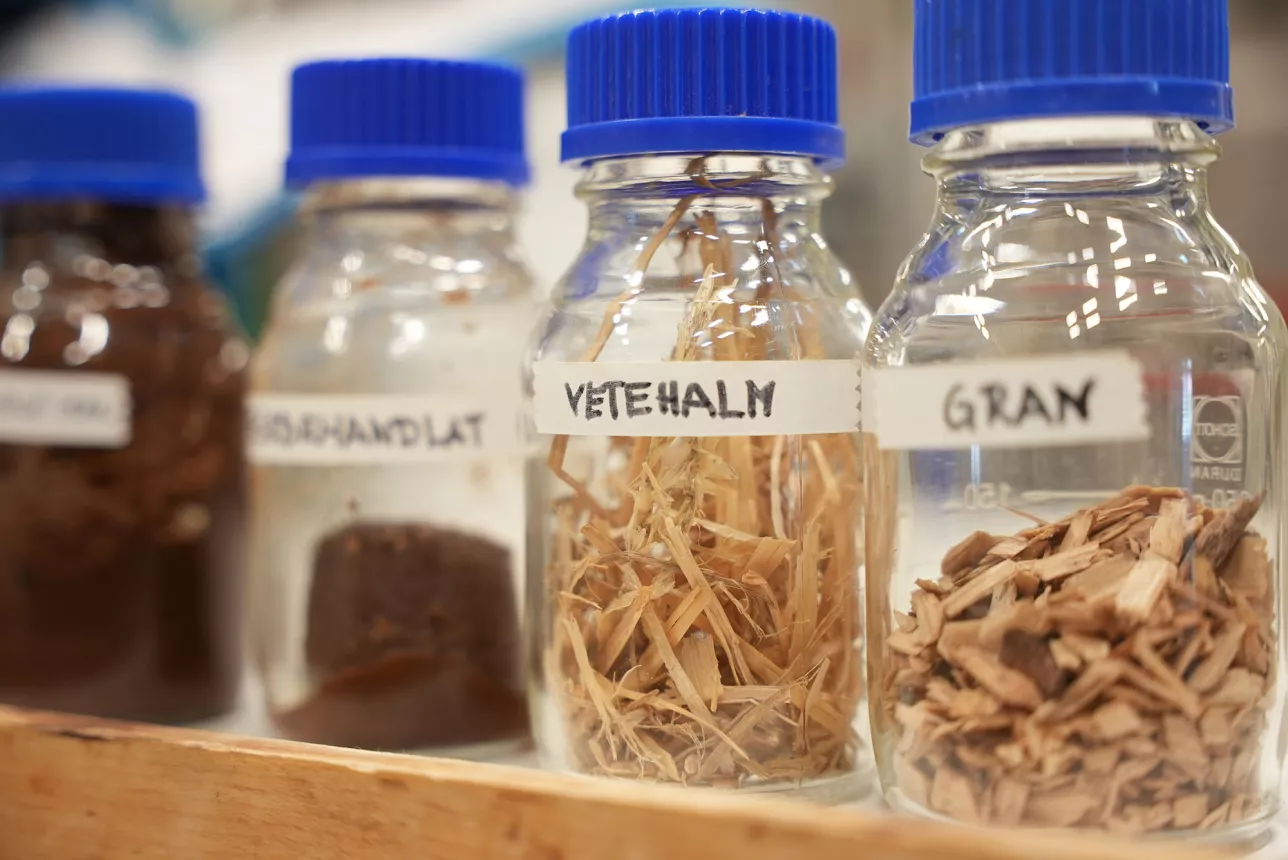Biorefinery
The Division of Chemical Engineering has a long history in biorefinery. The work is driven by society's need to reduce the use of fossil raw materials.

Production of chemicals from biomass
The research uses different types of biomass, mainly lignocellulose from trees, as a raw material for the production of chemicals. The conversion can be done by both thermochemical and biochemical processes. The focus is on improving processes for the production of platform chemicals, which in turn can be used as starting materials for a wide range of end products.
Biofuel production
Biofuels are needed to reduce global carbon dioxide emissions, along with measures such as more energy efficient vehicles and reduced transport needs. Ethanol, biogas and biohydrogen from lignocellulose and the production of green LPG from the by-product glycerol are the main areas of research.
The department also houses the national process development unit where pilot-scale pretreatment and fermentation can be studied for both batch and continuous processes.
Purification and concentration of macromolecules
The components that are fractionated can originate from existing industrial processes or be produced at the department in one of our pretreatment reactors. The focus of this work is to create resource-efficient separation and fractionation processes that can be implemented in present and future biorefineries.
Affiliated researchers
Links open personal profiles in Lund University's Research Portal
- Ola Wallberg
- Christian Hulteberg
- Sara Blomberg
- Borbala Erdei

Contact
Ola Wallberg, Professor
E-mail:
ola [dot] wallberg [at] ple [dot] lth [dot] se (ola[dot]wallberg[at]ple[dot]lth[dot]se)
Phone:
+46727445622
Profile Area Energy Transition
The research area is part of LTH's Profile Area Energy Transition (lth.se).
